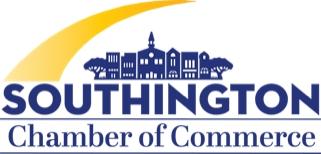AI Enters the Workplace: What Employers Should Know
Article: September 2025
Artificial intelligence (AI) is transforming the workplace, but with new tools come new responsibilities for employers. From automated note-taking apps to applicant tracking systems, Connecticut businesses must balance efficiency with compliance, privacy, and fairness.
AI Recording and Note-Taking Tools: Applications like Fireflies.ai and Otter.ai can record meetings, generate transcripts, and create summaries. While convenient, they raise legal and trust concerns:
- Connecticut Recording Laws: In-person conversations require only one-party consent, but phone and virtual meetings require consent from all participants. Employers must be especially cautious when meetings include people from other states, as stricter “all-party consent” rules may apply.
- Employer Guidance: Always disclose when AI transcription or recording is in use. Develop a clear policy requiring employee and participant consent before using these tools and set rules for secure storage and use of transcripts.
AI in Hiring and Bias Laws: AI-driven applicant tracking systems (ATS) and video interview software are increasingly used to screen candidates. However, federal and state regulators are scrutinizing these tools for bias and discrimination. The EEOC has issued guidance warning employers about disparate impact from AI-based hiring tools. States such as New York and Illinois already have specific laws regulating AI in hiring. Connecticut employers should anticipate similar measures and proactively audit their systems for bias.
Workplace Monitoring and Pending CT Legislation: AI is also used in “bossware”—surveillance tools that track keystrokes, screenshots, and productivity. Pending Connecticut Senate Bill 1484 would:
- Limit monitoring to legitimate business purposes.
- Require transparency and employee notice when AI is used.
- Prohibit predictive monitoring that interferes with labor rights.
- Mandate assessments of automated decision-making systems.
Practical Steps for Employers: Employers should act now to prepare for this evolving landscape:
- Adopt a Written AI Policy – Cover recording, note-taking, hiring systems, and monitoring practices.
- Ensure Consent – Make disclosure and employee agreement standard practice for AI recording or transcription.
- Audit Hiring Tools – Regularly review AI systems for bias and compliance with EEOC standards.
- Stay Ahead of Laws – Monitor state and federal developments like CT SB 1484 and adjust policies accordingly.
AI can improve efficiency, but misuse can lead to liability and eroded trust. Connecticut employers who build transparent policies, ensure consent, and audit hiring and monitoring tools will be best positioned to leverage AI responsibly.
Need help creating a Human Resources plan for managing AI in the workplace? Contact the Southington Regional Chamber to be connected to a CHUMCAP specialist. CHUMCAP is a partner HR program of the Southington Regional Chamber of Commerce and industry experts to provide information that helps you protect your business and your employees. For information on other topics, visit the CHUMCAP page at SouthingtonChamber.com or call the Chamber office 860.628.8036. (This content is a collaboration of the Southington Regional Chamber of Commerce, Tracy Aparo – eGAGE, and the Law Office of Allie Levene.)
